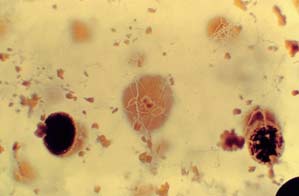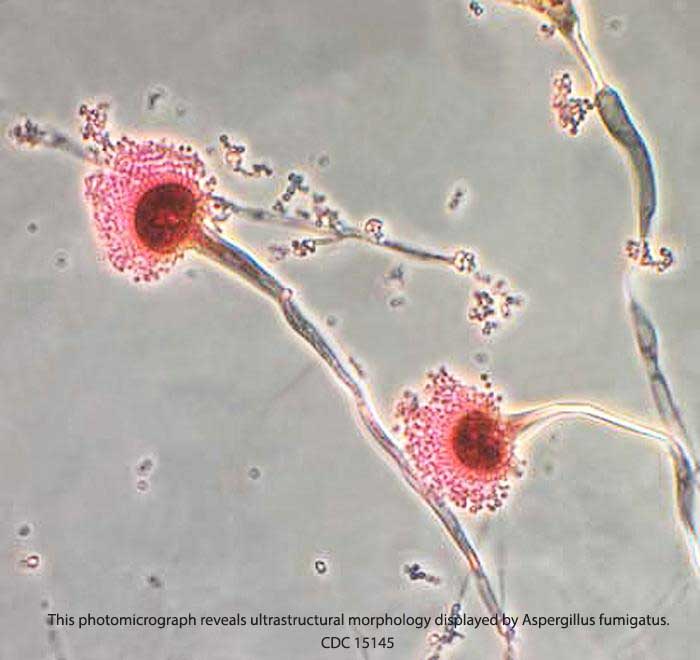Can I Sue for Aspergillus Meningitis from an Injection?
Yes, you can sue for Aspergillus meningitis from an injection or other medical procedure if your infection can be linked to tainted medication. Our lawyers have won money for clients in cases like this. You can contact attorney Fred Pritzker for a free case evaluation: 1-888-377-8900 (toll free).
Outbreak Linked to Contaminated Medication

A multi-state outbreak of Aspergillus meningitis and Exserohilum meningitis has sickened patients who received epidural steroid injections for back pain. The steroid product used was preservative-free methylprednisolone acetate prepared by New England Compounding Center (NECC), located in Framingham, MA. All evidence points to contamination with Aspergillus fumigatus and Exserohilum, fungi that can cause meningitis (particularly when injected in the spinal area) and stroke. Many of the patients who developed meningitis also had strokes.
To date, there are over 700 CDC-confirmed cases of fungal infection in 20 states. 377 of these people contracted fungal meningitis, and 345 of them contracted other infections, including epidural abscess and osteomyelitis. People from these states have been sickened: Florida, Georgia, Idaho, Illinois, Indiana, Maryland, Michigan, Minnesota, New Hampshire, New Jersey, New York, North Carolina, Ohio, Pennsylvania, Rhode Island, South Carolina, Tennessee, Texas and Virginia. Over 50 people have died. Fred and his team represent meningitis and stroke patients nationwide. They are representing patients already diagnosed with meningitis and patients had or will be having a spinal tap and other tests to determine if they have been infected with Aspergillus, Exserohilum or another genus of fungus.
Many of the victims of this outbreak also had strokes that are believed to have resulted from their infection.
Outbreak Investigation
In Septermber, 2012, the CDC was notified that a patient with Aspergillus meningitis had been given an epidural steroid injection 19 days before onset of meningitis symptoms. Aspergillus fumigatus was isolated from cultures of the patient’s cerebrospinal fluid. Thereafter, Aspergillus and Exserohilum, another fungus, were found in fungal meningitis patients who had had the epidural steroid injections.
It took the curiosity and determination of doctors at Vanderbilt University Medical Center in Nashville, Tennessee to make the connection between the steroid injection and the meningitis. Once the Tennessee Department of Health and the CDC were notified of the possible link, the floodgates were open, and many reports of post-steroid-injection meningitis came in from several states. The number of confirmed cases has risen daily, and we expect the numbers to continue to climb.
Aspergillus and Exserohilum meningitis are extremely rare. It is the location of the infection (the spinal area) that created a “perfect storm” for an outbreak of these meningitis illnesses. Tragically, several patients have died, and again, we expect to see many more deaths linked to these injections. In many of the wrongful death cases, the patients suffered both meningitis and stroke. One neurologist we spoke to said it is possible for Aspergillus and Exserohilum meningitis to cause stroke, but again, it is rare.
Infected patients have presented with meningitis symptoms approximately one to four weeks following their epidural steroid injection for pain. Symptons of meningitis and associated stroke include the following: fever, new or worsening headache, nausea, and/or new neurological deficit (consistent with deep brain stroke). Cerebrospinal fluid (CSF) obtained from these patients has typically shown elevated white cell count (with a predominance of neutrophils), low glucose, and elevated protein.
